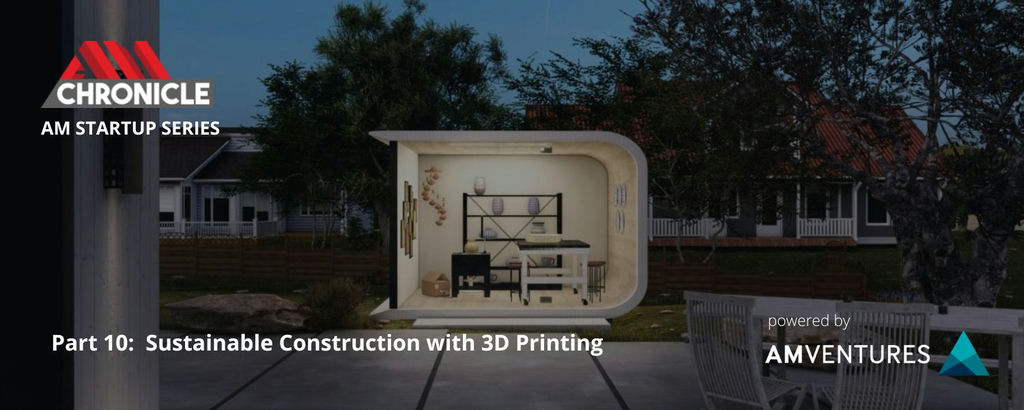
Founded in 2019, Azure Printed Homes is fundamentally changing the construction industry by leveraging 3D printing technology using recycled polymers to prefab modern backyard offices, Accessory Dwelling Units (ADUs) and homes. The team at Azure Printed Homes includes experts in 3D-printing, robotics, pre-fab housing manufacturing, operations, finance, business development and marketing.
Brains behind this
Azure is the brainchild of Ross Maguire and Gene Eidelman, who have a combined 50+ years of experience in construction and real estate development.
The Before and The After
There is a global housing shortage, which has been affecting over 1.5 billion people. The housing crisis has gotten worse due to high cost of labor and materials. A study by UN-Habitat reveals that the world needs to build 96,000 new affordable homes every day in order to house the estimated 3 billion people who will need access to adequate housing by 2030.The US housing shortage has been estimated to be 3.8 million housing units.
The construction industry is one of the oldest and largest in the world, which continues to use the same basic building techniques for centuries, resulting in the vast majority of projects being delivered to be over budget and behind schedule most of the times. Contractors have completed only a quarter of projects in the U.S. within 10% of initially promised deadlines. There is a shortage of skilled employees in every construction trade.The construction sector is also the largest global consumer of raw materials globally, responsible for significant pollution (air and water) as well as landfill wastes.
Other 3D companies in construction industry print with cement or cement-like material. According to the National Ready Mixed Concrete Association, each pound of concrete releases 0.93 pounds of carbon dioxide. The cement process is the sole reason why the concrete industry makes up 8% of overall global emissions. Cement 3D-printing companies just print walls, with the balance of construction performed by traditional methods.
Technology:
Azure Printed Homes usesthe patented design and method to 3D print homes with recycled plastic material. The fabrication takes place in Azure’s factory and 3D-printing is highly automated and replaces seven trades. The entire structure is transported to the building site, where it is assembled in one to three days.
AM Ventures Asks
Along with technological innovations, it is important for start-ups to understand how their innovation is addressing the world’s biggest Environmental, Social and Governance Challenges. AM Ventures, our co-collaborator for this AM start-up series, poses a question to Azure Printed Homes on their contribution to the world’s biggest ESG challenges.
On the Environmental front, the construction sector is the largest global consumer of raw materials globally, and it is responsible for approximately 23% of air pollution, 50% of the climatic change, 40% of drinking water pollution, and 50% of landfill wastes. Recycled plastic is used by Azure Printed Homes and there is virtually no waste.
On the social front, there is a global housing shortage affecting over 1.5 billion people. High cost of labor and materials are some of the factors fueling the housing crisis.Azure Printed Homes can be completed 30% less expensive and 70% faster.
Funding Facts
The founders boot-strapped the Company through May 2022 by providing $1,300,000. They raised two pre-seed rounds: $200,000 at $20,000,000 valuation and $250,000 at $24,000,000 valuation in the summer of 2022. Currently, the monthly revenue is $400,000, and they have over $11,500,000 in pre-orders for printed model units of backyard studio and ADU.
They seek:
They are looking to raise $6,000,000 to start mass-production of units. Also seeking advice on how to establish global strategic partnership in order to meet the demand.
Contact Details
Ron Barnoy ron@azureprintedhomes.com
Gene Eidelman gene@azureprintedhomes.com
Disclaimer: This AM Chronicle Startup series is powered by AM Ventures and companies mentioned in the series are not necessarily funded or supported by AM Ventures directly, unless otherwise mentioned.
Subscribe to AM Chronicle Newsletter to stay connected: https://bit.ly/3fBZ1mP
Follow us on LinkedIn: https://bit.ly/3IjhrFq
Visit for more interesting content on additive manufacturing: https://amchronicle.com/
Bengaluru, India – January 19, 2026 – Lodestar3D, a premier provider of advanced manufacturing solutions…
Lodestar3D, a prominent distributor of industrial 3D printing solutions in India, has announced the successful…
The International Advanced Research Centre for Powder Metallurgy and New Materials (ARCI) has signed a…
Since his postdoctoral days at MIT, Hang Yu, associate professor of materials science and engineering,…
Amritsar-based Amandeep Hospitals, in collaboration with Ujala Cygnus, has inaugurated North India’s first hospital-based 3D Printing and Virtual…
Engineers at The University of Texas at Austin are leading an academic and industry all-star…
This website uses cookies.